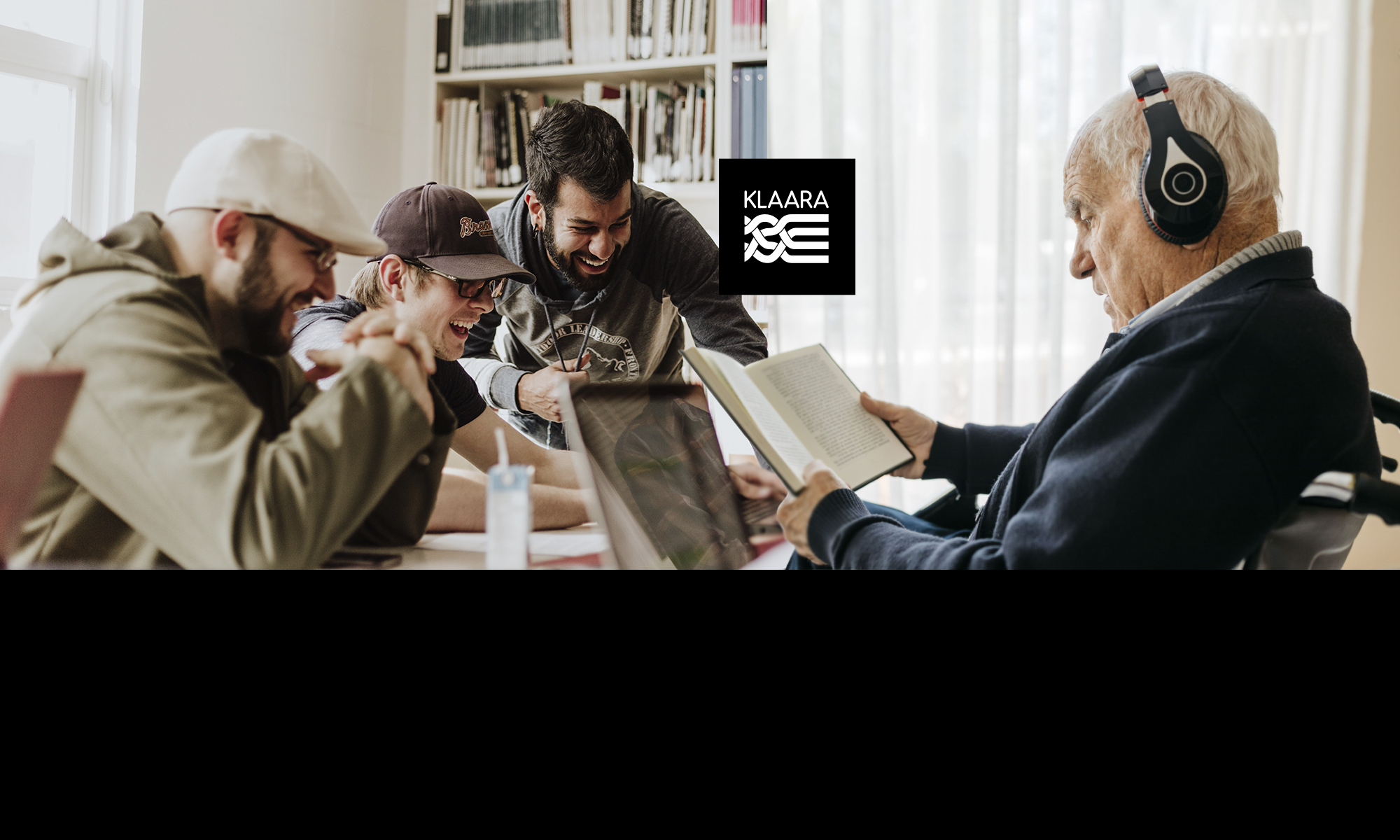The writer of the blog: Tiina Onikki-Rantajääskö
In recent years, Easy Language has been established as part of the language studies at the Faculty of Humanities of the University of Helsinki. Future masters of the Finnish language can choose the course “Introduction to Easy Language” and the “Project course for writing Easy Language”, which are also intended for students of translation studies. Students in other language subjects can usually be included in the courses.
The courses provide basic information about Easy Language and its target groups, as well as training for producing Easy Language texts. Language experts are thus graduating from the University of Helsinki with knowledge on Easy Language and readiness to develop their expertise in it. Some of them will become teachers of mother tongue and literature and some of them other language professionals, such as journalists, communicators, translators and language consultants. Finnish as a second or foreign language is also connected in many ways to the tasks of language professionals, and in those tasks it is important to know the possibilities of Easy Language. We hope that Easy Language studies will produce language professionals who know how to utilize Easy Language and train others.
There is a great need for Easy Language in society. Its importance will increase as the Accessibility Directive introduces cognitive and, in particular, linguistic accessibility as a civil right. There is a need for language professionals who are able to train experts of Easy Language and work in the field, in order to meet the demand for Easy Language in a quality way. Easy Language is not a panacea but an activity related to the use of language and interaction, and the experts need to understand and take into account the principles of Easy Language.
A lot of research is needed to support the development of Easy Language. In recent years, Finnish-language students at the University of Helsinki have been attracted to Easy Language research from their bachelor’s degree on. Several master’s theses are about to be completed, as well as a few dissertations on Easy Language. Master’s theses concern, for example, the long words of Selkosanomomat (Easy Language newspaper), Easy Language adaptations in school books, and the variation of the perspective in an Easy language detective story. Hopefully, the graduating students will continue to dissertation research. Similar activities are running in other Finnish universities, too, and the Klaara network brings the researchers of Easy Language together from students onwards.
When consolidating teaching of Easy Language, university teachers have also got training on the special features and issues of Easy Language. Over the past couple of years, the courses have been implemented in collaboration with Easy Language experts. This fall, also video lectures have been co-produced. They can be used as part of future teaching and online courses of Easy Language. This will ensure the continuity of teaching in the years to come, when the resources of the Faculty of Humanities are tight due to funding cuts at the university. E-learning creates opportunities to open courses more widely so that time and place constraints are exceeded. Hopefully, at some point, national and international cooperation can also be implemented.
Our goal is to obtain a 30-credit study module for Easy Language and its research, which could be combined with optional studies in other master’s programs as well. However, this is a question of resources. Also, the inclusion of the comprehensive and multidisciplinary dimensions of Easy Language in education demands resources. Enthusiastic feedback from the students helps us to do the long-term work to achieve a persistent position for Easy Language education at the university.
The writer: Tiina Onikki-Rantajääskö,
professor, Finnish language
Department of Finno-Ugrian and Scandinavian Studies
Faculty of Humanities, University of Helsinki

Thank you for this contribution. Easy Language education as well as research on this topic is so important from an European perspective. From a practical point of view, the initiative ”Inclusion Europe” set European-wide standards for the production and translation of Easy Language texts. However, Easy Language education and research are still lagging far behind. In Germany, there is a first Master programme for Accessible Communication at the University of Hildesheim, which has established best practices for teaching Easy Language in the last couple of years. My own university has just started with an Easy Language modul at the Faculty of Translation Studies in Germersheim. At both sites, several PhD projects concerning this important topic have just been finished or are on their way. I think it is extremely important to exchange experiences across countries and learn from each other. I’d be happy to learn more about your progress and developments concerning Easy Language education and research!
Thanks for your contribution. It is really fantastic to see that Easy Language is moving forward, and I would also like to learn more about it. At Universitat Autònoma de Barcelona we are also designing a specialisation course on easy-to-understand language based on the results of the EASIT project: pagines.uab.cat/easit
For me a key aspect is getting more research done. In this regard, our colleagues in Germany are a good example. There are many recommendations which are based on experience but have not been researched.
So let’s keep working on this and let’s cooperate internationally.